Oil Condensate Caused Spill Around Iran’s Bandar Abbas
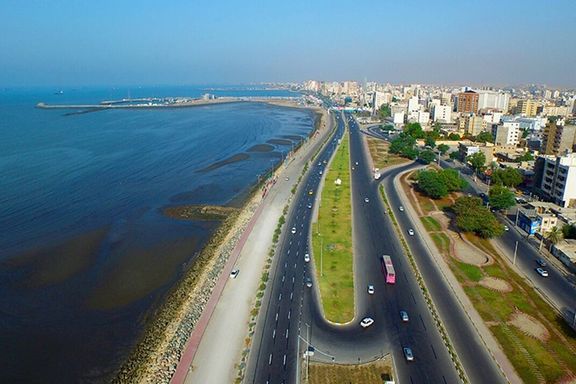
The Iranian Department of Environment says it has identified the source of the foul odor and oil spill in and around the southern city of Bandar Abbas.

The Iranian Department of Environment says it has identified the source of the foul odor and oil spill in and around the southern city of Bandar Abbas.
The head of the environment department of Hormozgan province, Habib Masihi Taziani, said on Thursday that the bad smell that has been bothering residents in the past few days was emitted from gas condensates that reached the coastal waters of the Persian Gulf.
He said the floodwater overflowing from Kol River at a point about 40 kilometers from Bandar Abbas caused an accident on a feeding pipeline of the Persian Gulf Star Oil Company and made a large amount of oil gasses to spill into the sea.
Taziani added that operations to remove the oil spill is underway and the pipeline will be repaired as soon as the floodwater goes down.
The Persian Gulf Star Oil Company has confirmed the fracture in the pipeline and said the leaked substance can only cause minor complications such as headaches for the residents of the affected areas.
A local medical scientist, said the concentration of these gasses are not high enough to be dangerous, but asked people, particularly pregnant women, children, the elderly and respiratory patients, to stay home and close their windows.
Heavy rain and snow after months of drought have led to floods across Iran in the past week, causing deaths and damage to thousands of properties and roads.
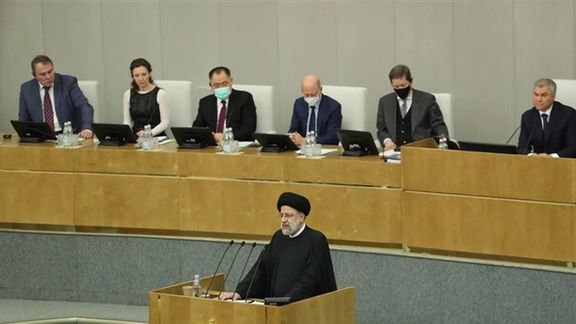
Iran’s president told the Russian Duma that the “resistance” of nations such as Iran and Russia has weakened the US and put its “strategy of domination” in disarray.
“The strategy of domination has now failed, and the America is in its weakest position,”President Ebrahim Raisi who is on an official visit to Moscow told the representatives of the Russian state Duma while emphasizing that "the desires for domination" persists and new forms of domination are on the agenda.
"The most important goal of this agenda is to weaken independent governments from within, which is pursued through economic sanctions, destabilization, the promotion of insecurity, and false narratives of events; in such a way that they try to change the place of the oppressor and the oppressed in public opinion," Raisi said.
The Iranian President also said the single "concept of resistance" brought about "failure of the policy of military occupation" and forced the US to flee Iraq and Afghanistan.
US forces are still in Iraq with a new mission of training Iraqi forces, instead of combat against the Islamic State group.
Raisi, who held a three-hour meeting with the Russian President Vladimir Putin on Wednesday, in his address to the Duma accused Western powers of forging complex plans "to send Takfiri terrorists on new missions" from the Caucasus to Central Asia.
Iranian officials use 'takfiri' to refer to Sunni fundamentalism and as a vague umbrella term to refer to Sunni dissident groups and individuals inside Iran. "Experience has shown that it is pure Islamic thought that can prevent the formation of extremism and Takfiri terrorism," Raisi said.
In a clear show of support to Russia, he also alleged that the North Atlantic Treaty Organization (NATO) is also trying to infiltrate various geographical areas under new guises. "Promoting pro-Western governments and confronting independent democracies based on national identities and traditions is part of NATO's cultural projects that reflect the hypocrisy of this diminishing pattern of behavior."
Calling sanctions "a common form of new domination", he said countering them requires a collective response from “independent nations”.
The US has threatened Russia with more sanctions if it attacks Ukraine amid a serious crisis triggered by large Russian troop concentrations on the Ukrainian border.
On the nuclear issue and the ongoing Vienna talks to restore the 2015 nuclear deal, Raisi said the Islamic Republic will never relinquish its rights but reiterated that Tehran is serious about reaching an agreement, "if the other parties are serious about lifting the sanctions effectively and operationally."
Russia is a signatory to the deal, the Joint Comprehensive Plan of Action (JCPOA) and in recent weeks has played a proactive role in the Vienna talks as a mediator between Iran and the United States which is only indirectly involved in the talks.
Calling the model of cooperation between Tehran and Moscow in Syria successful, Raisi said resistance of the Syrian people and government this has ensured the consolidation of regional security. The Iranian and Russian military interventions in Syria has killed tens of thousands of civilians.
Referring to economic relations between Tehran and Moscow, Raisi said boosting ties will strengthen the economies of both nations and regional and international security. The signing of a 20-year agreement during his Moscow trip has not materialized.
The annual volume of trade between the countries currently stands at around $3 billion. Tehran says it intends to increase it to $25 billion.
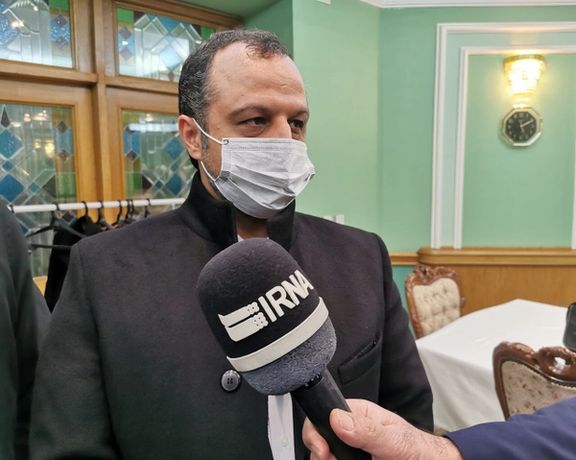
Iran's finance minister says Tehran and Moscow have signed several “important” economic agreements during President Ebrahim Raisi’s visit to Russia.
Ehsan Khanduzi said on Thursday that the two countries have agreed to expedite the implementation of a $5-billion credit line, which was announced a few years ago.
He added that among the projects to be financed through the credit line is completing the construction of railroads, including the International North–South Transport Corridor, parts of which pass through Iran. He also said some 200 locomotives will also be bought from Russia.
Iran's Oil Minister Javad Owji said on Thursday that the two countries agreed on several projects in the energy sector, without providing any details.
Behrouz Kamalvandi, the spokesman of the Atomic Energy Organization of Iran, said that Tehran and Moscow are in talks over the construction of new units at the Bushehr nuclear power plant as part of their efforts to boost cooperation in nuclear technology.
Earlier on Wednesday, Raisi presented the draft of a proposed 20-year cooperation agreement to President Vladimir Putin, to update a 2001 version. Iranian officials had for months said preparations for the agreement were finalized and it would be signed soon when the two presidents met, but last week they said more preparations were required.
Foreign Minister Hossein Amir-Abdollahian said on Wednesday that the two presidents have tasked their respective foreign ministries with preparing the 20-year roadmap.
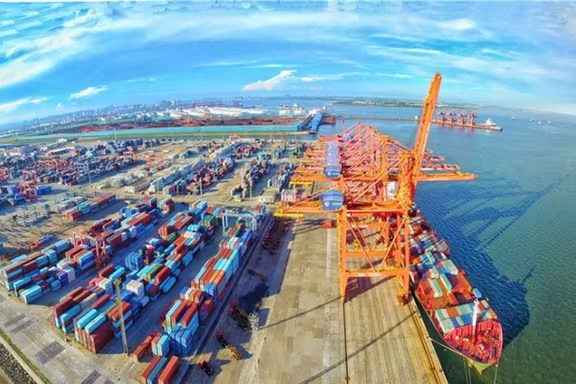
China, which on Thursday reported oil imports from Iran for the first time in a year, has offloaded the cargo into state reserves in the port city of Zhanjiang.
The move revealed by a trade source and ship tracking specialist Vortexa Analytics to Reuters on Thursday comes as the Biden Administration is locked in tough negotiations with Iran to revive a 2015 nuclear deal that will include the lifting of US sanctions on Iranian oil. The former Trump administration pulled out of the deal and re-imposed sanctions.
Iran, which sits on the world's fourth-largest oil reserves, relies heavily on oil revenue, but sanctions have prevented it from exporting at anywhere near capacity since 2018. Before US reimposed sanctions. Iran was selling more than 2 million barrels of crude per day.
The refilling of China's strategic petroleum reserves in the past few weeks also comes ahead of a plan to release oil from its emergency stockpile in a rare coordination with the United States to help cool global oil prices which hit a seven-year high this week. The high price of oil is helping fuel inflation around the world.
China has been importing Iranian oil under the radar which is not reflected in official customs data as buyers are fearful of invoking US sanctions. On Thursday, China's customs reported the first import of Iranian crude in a year despite ongoing sanctions.
China brought in 260,312 tons (1.9 million barrels) of Iranian crude oil in December, according to data from the General Administration of Chinese Customs, which last recorded Iranian oil inflows in December 2020 at double the volume.
A senior trade source with knowledge of the shipment told Reuters this particular cargo was offloaded into a state reserve site in Zhanjiang in late December.
This was followed by another similar-sized shipment that was discharged into the same port for the emergency stockpile, according to ship tracking specialist Vortexa Analytics.
"There were reports of importing Iranian crude earlier - but hush hush somewhat. Now I think the Chinese are testing openly to see US response," Tilak Doshi, managing director of Doshi Consulting in Singapore.
There have been no comments about the Reuters report by China or the US State Department.
"This is (China's) attempt to cool oil prices. It's basically to show the world that there's more supply even though it's only available to them," said a senior oil trader who declined to be identified as he is not authorised to speak to the media.
Unofficially, China's imports of Iranian oil picked up at the end of 2020 and have continued despite the sanctions that, if enforced, would allow Washington to cut off those who violate them from the U.S. economy.
Shipments had held above 500,000 barrels per day on average between August and October, as buyers judged that getting crude at cheap prices outweighed the risks of busting U.S. sanctions, Reuters reported in November.
To avoid the sanctions, Iranian crude has been exported to China marked as oil from Oman, the United Arab Emirates and Malaysia, squeezing out supplies from Brazil and West Africa, traders have said.
Imports from Iran have accounted for about 6% of China's crude oil imports, according to shipping data and traders' estimates.
China was expected to release some stocks from its strategic stockpile around the Lunar New Year, Reuters reported last week.
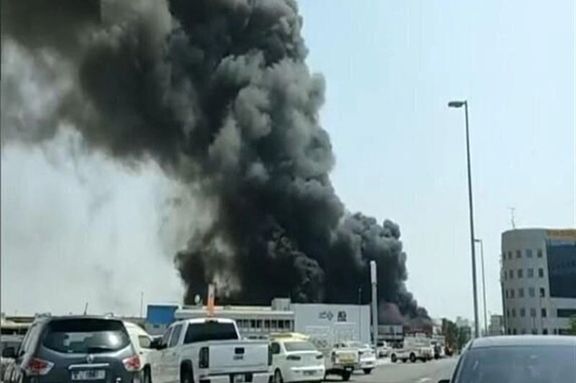
Cruise and ballistic missiles were used alongside drones in Monday's attack on the United Arab Emirates, and several weapons were intercepted, the UAE ambassador to the United States said.
It was the first time the UAE, which rarely discusses its security in public, had said missiles were used in the attack which killed three civilians in Abu Dhabi, and the first time it has claimed to have intercepted some of the weapons.
Yemen's Iran-backed Houthi group siad it carried out the attack with five ballistic missiles and several drones.
"Several attacks - a combination of cruise missiles, ballistic missiles and drones - targeted civilian sites in the UAE. Several were intercepted," UAE Ambassador Yousef Al Otaiba told an online panel hosted by the Jewish Institute for National Security of America (JINSA).
Many analysts and UN experts belive Iran is supplying the Houthis with the sophisticated weapons. Yemen is not known for having the technological capabilities needed to develop and manufacture missiles and drones.
In response to the attacks, US President Joe Biden said on Wednesday his administration was considering re-designating the Houthis a terrorist organization. The Biden administration lifted that designation last February; the UAE has called for it to be restored.
The UAE had "long left the Yemen war," Otaiba said. "Attacking a country that is not in combat makes a very clear case" to reinstate the Houthi terrorist designation.
With reporting by Reuters
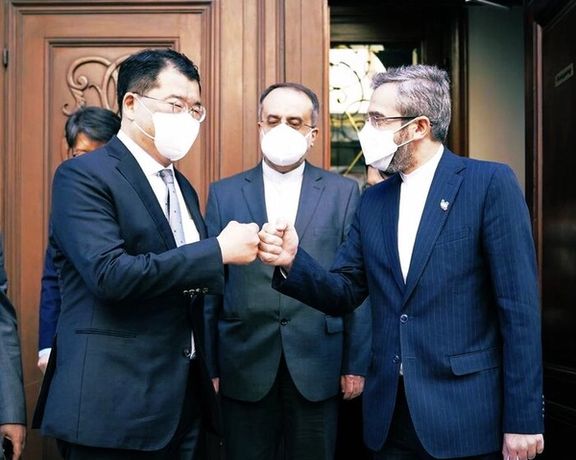
Iran and South Korea are discussing ways to use funds blocked in Seoul due to the US sanctions to settle Tehran’s overdue membership fees to the United Nations.
According to South Korean government sources on Thursday, Tehran and Seoul seek to capitalize on the assets to handle the issue of the UN dues, which have deprived Iran of its voting rights.
"Our government is in consultations with the Iranian government in that regard and is in related consultations with the US and the UN as well," sources told Yonhap News Agency on condition of anonymity.
After the Islamic Republic lost the right to vote at the UN, Foreign Ministry Spokesman Saeed Khatibzadeh said Tehran is trying to find a secure channelto pay its membership fee and end its suspension.
According to the UN charter, a member loses the right to vote when its debts equal or exceed the amount of dues it should have paid over the previous two years.
Last year, Iran managed to pay $16 million of its $65 million arrears to recover its vote after Tehran was granted an exemption from the sanctions and was allowed to access money blocked by the US Treasury. This time the minimum amount Iran must pay is over $18 million.
Two South Korea banks hold $7-9 billion of Iranian money, owed for oil imports.